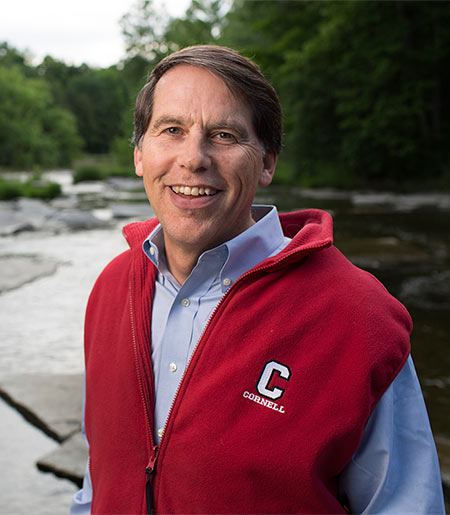
- This event has passed.
Friday Conversation with Dr. David Lodge

Date
January 26, 2018 at 7:00 PM EST
Location
Corson-Mudd Hall
Professor David Lodge earned a PhD at University of Oxford in 1982 and acceoted his current appointment at Cornell University in May of 2016 where he serves as the first Francis J. DiSalvo Director of the Atkinson Center for a Sustainable Future. Professor Lodge serves in the Department of Ecology and Evolutionary Biology with a joint appointment in the College of Agriculture and Life Sciences and the College of Arts and Sciences.
As the founder of the University of Notre Dame Environmental Change Initiative (ND-ECI), where researchers strive to conduct research that matters to society, Lodge’s goal is to find answers to the most critical environmental questions of our time. Along with collaborators and partner organizations, he focuses on the interrelated problems of invasive species, land use, and climate change, and their synergistic impacts on water resources. He seeks to provide solutions to minimize the trade-offs between human welfare and environmental health where trade-offs are unavoidable, and discover win-win solutions where they are possible. He has conducted extensive research experience on a wide variety of vectors of invasive species, including ships, boats, canals, and commerce in life food, pets and plants. With numerous collaborators, he have studied Eurasian watermilfoil, rusty crayfish, zebra and quagga mussels, and Asian carp and many other species. My research focuses on ecological forecasting to better inform environmental risk assessment, policy development, and natural resource management. On numerous occasions Lodge has testified before the U.S. Congress and has also served as an expert witness in federal court. He served as the first chair of the U.S. government’s national Invasive Species Advisory Committee in 2000-01, led research on freshwater biodiversity as part of the United Nations’ Millennium Ecosystem Assessment in 2000-05, and led an expert subcommittee providing advice to the U.S. Environmental Protection Agency on reducing invasions from the ballast water of ships in 2010-11. He is a member of the scientific advisory boards of NOAA and the International Joint Commission. Collaborations with economists, historians, theologians, and philosophers, and has provided him with extensive experience in partnering with organizations such as The Nature Conservancy to help translate and transfer scientific work to the public policy arena. He served as a Jefferson Science Fellow in the US Department of State in 2014-15 and faculty member at the University of Notre Dame for over 28 years.
